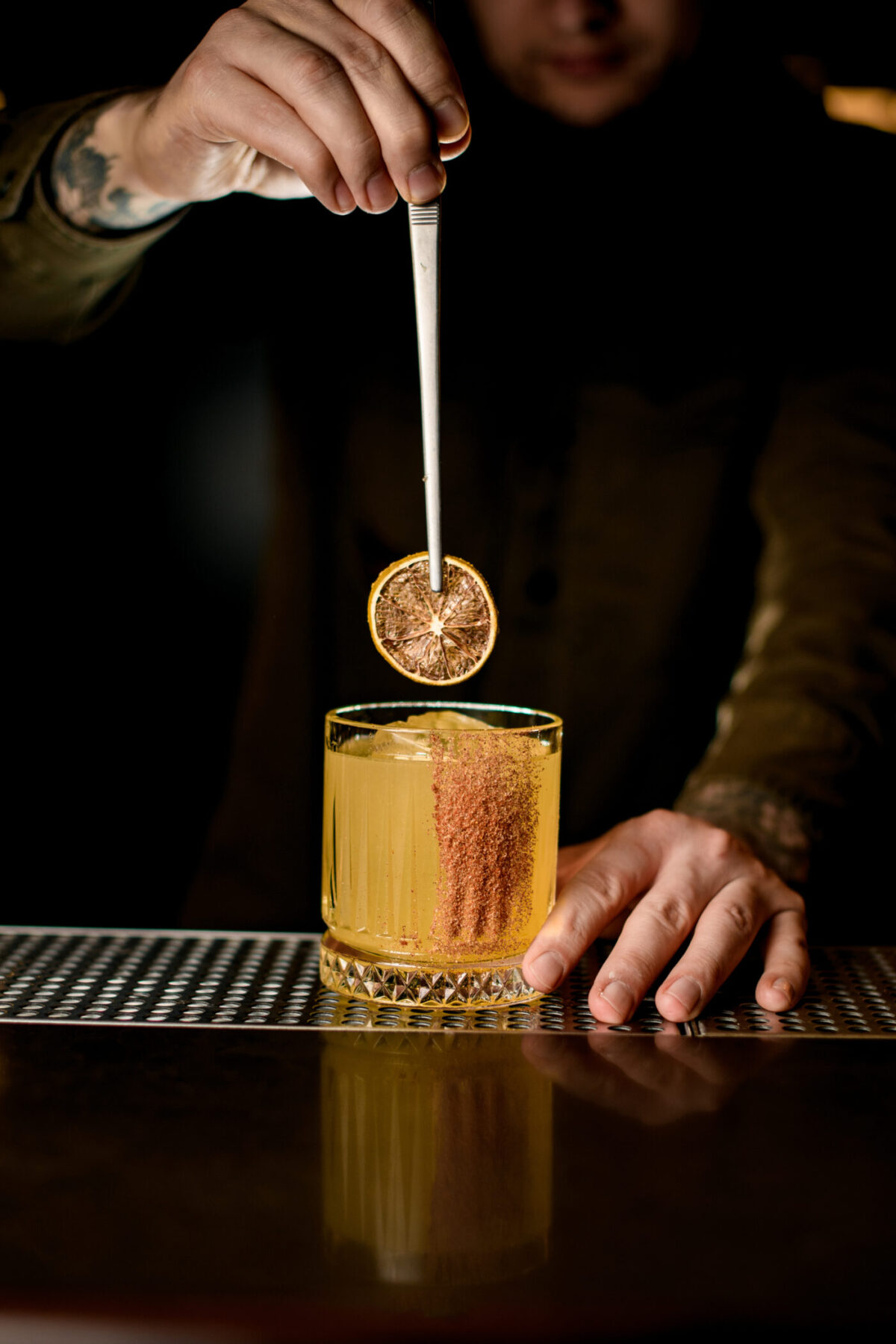
Nestled at the intersection of history and innovation, Pittsburgh’s cocktail culture weaves a fascinating narrative that mirrors the city’s evolution. From the hidden speakeasies of Prohibition to the reimagined craft cocktails of today, the journey of mixology in Pittsburgh transcends the glass, shaping both the city’s social fabric and its culinary landscape.
Looking back over 100 years, the dark shadow of Prohibition cast its influence far and wide, and Pittsburgh was no exception to its effects.
In an era when the nation’s thirst was quenched illicitly, the city’s underbelly came to life with secret speakeasies that evaded the prying eyes of the law. These hidden enclaves became hotspots for camaraderie, rebellion, and creative cocktail concoctions. Speakeasies certainly weren’t new to Pittsburgh; in fact, a story in the June 30, 1889 edition of the Pittsburg Dispatch declared, “THE SPEAK EASIES: A PITTSBURG INVENTION.” Prohibition simply forced these institutions to get a bit more creative.
Pittsburgh’s resistance to national prohibition was so well-known that it became the stuff of legend. The city earned the title “The drinkingest town in the west,” and politicians and bootleggers worked together to keep liquor flowing in the Steel City.
In hidden rooms, cocktails like the Old Fashioned and the Negroni took on new identities, as innovative bartenders experimented with limited resources. Drinks like the Fussfungle emerged from this necessary experimentation. Developed in McKeesport, this drink sweetens a rye Old-Fashioned with burnt brown sugar and molasses.
As Pittsburgh emerged from the shadows of Prohibition, it did so with an air of sophistication that paralleled its industrial prowess.
The mid-20th century witnessed the resurgence of classic cocktails, driven by the glamour of Hollywood and the allure of mid-century design. Bars and lounges became havens of elegance, where patrons sipped martinis and gimlets against a backdrop of polished mahogany and velvet drapes.
The city’s transformation into a hub of cultural exchange influenced its libation landscape. Artists, writers, and musicians converged in refined establishments, fostering creativity and discourse. The clinking of glasses and murmured conversations gave birth to ideas that would reverberate through the decades, leaving an indelible mark on Pittsburgh’s identity.
As the 20th century drew to a close, Pittsburgh faced a new era of challenges. The decline of the steel industry prompted a rebirth that was reflected in the city’s evolving cocktail culture. The craft cocktail movement gained momentum, introducing a fresh perspective on mixology that celebrated quality ingredients and innovative techniques. Bartenders took on the role of modern-day alchemists, infusing drinks with regional flavors and spirits.
Since the 2010s, the city has seen a boom in breweries and distilleries, both quickly becoming popular choices for date nights, social gathering, and even business meetings. Due to antiquated liquor laws prohibiting distilleries from having on-site sales, Pittsburgh was without such establishments from the 1920’s until 2012, when Wigle Whiskey opened its doors in the Strip District. Now there are over 75 distilleries across the state of Pennsylvania, with close to twenty in Allegheny County alone. These spots are perfect for discovering locally-brewed, inventive spirits and beers that have gained loyal followings not only in the city but across the country.
The future of Pittsburgh’s cocktail scene is a tantalizing blend of the past and the cutting-edge. With each sip, patrons partake in a narrative that is both timeless and progressive—a narrative that resonates with the resilience, creativity, and community spirit that define the city itself. As we raise our glasses to the history, innovation, and culinary artistry that encompass Pittsburgh’s cocktail culture, let’s toast to the stories yet untold and the flavors yet to be explored.
Celebrate Pittsburgh’s rich cocktail history with this simple peach cocktail recipe from Wigle Whiskey:
INGREDIENTS
• 2 oz Wigle Pennsylvania Peach Whiskey Steeped with 3-5 Basil Leaves and a 3″ Strip of Lemon Peel Overnight + Strained Out
• 1/4 oz Simple Syrup
• 3 dashes of Wigle Rosemary Lavender Bitters
• Garnish: basil and dried lemon (optional)
INSTRUCTIONS
• Add Wigle Pennsylvania Peach Whiskey steeped with basil and lemon, simple syrup, Rosemary Lavender Bitters, and 3 dashes of Rosemary Bitters into a shaking tin with ice.
• Close the shaking tin, and shake for 8-12 seconds or until the cocktail tin is cold to the touch.
• Strain into a rocks glass or your favorite cocktail glass. Add 5-6 cubes of ice.
• Garnish with basil and dried lemon. (For a unique and unexpected twist, we like to rim our glass with Tajin, a chili-lime seasoning)
The folks at Wigle further suggest topping it off with your favorite bubbly prosecco or, to add even more local flavors to your cocktail, try adding Threadbare’s Dry Cider. This craft cider produced by Wigle’s sister company takes locally pressed apples and encapsulates their flavors and naturally ferments with wine yeast to create delicious bubbly hard cider.
Whether you’re mixing an original cocktail at home or discovering one of the city’s many bars, lounges, breweries, or distilleries, you’re participating in a legacy that has deeply shaped Pittsburgh’s identity. From its gritty roots to its current status as a center of innovation and creativity, the city’s cocktail culture serves as a microcosm of Pittsburgh itself. Cheers to Pittsburgh, a city that’s as complex, nuanced, and delightful as the drinks it inspires.